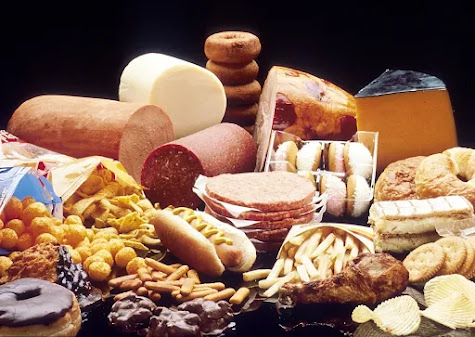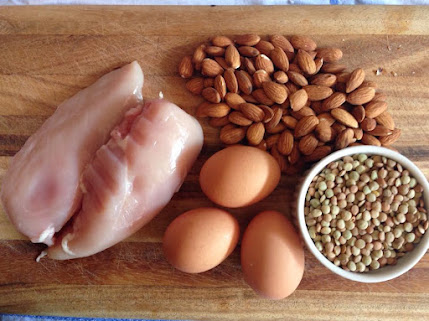The requirement is the number of supplements that snake people must obtain from food to meet their physiological needs.
The recommended dietary allowance is a
rating of supplements consumed each day to cover the needs of all people in a
given population. Recommended levels are based on the bioavailability of
supplements from a given diet.
What are the basic requirements for a
healthy diet? They are recommended for physiological gatherings such as
infants, preschoolers, children, adolescents, pregnant women, nursing mothers
and adults, considering their active work. They are offered half a day/day.
Our eating habits must provide adequate
calories, protein and micronutrients to achieve the greatest growth potential.
Therefore, it is essential to have a suitable diet at different stages of life.
There may be cases where adequate dietary
supplements cannot be accessed. In such high-stakes cases, where supplements
are clearly not beneficial when it comes to food sources powered by
restriction.
Carbohydrates, fats, and proteins are
macronutrients, needed in very large quantities. Nutrients and minerals include
micronutrients and are expected in limited amounts. These supplements are
fundamental to the physiological and biochemical cycles by which the human body
acquires, absorbs and uses food to maintain its health and functioning.
Supplements become important. A true
illustration of these invigorating foods is salt enriched with iron and iodine.
A reasonable portion of healthy food
Some parts of proper eating habits are:
Fat
Oils and fats, for example, spreads and
dairy contain notable food fats. Fat is a concentrated source of energy
providing 9 Kcal/g and includes varying degrees of unsaturated fats.
Fat in the diet comes from two sources,
viz. inconspicuous fats found in plant and animal foods; and noticeable or
added fats and oils. Fats act as a vehicle for fat-soluble nutrients such as A,
D, E and K nutrients and carotenes and promote their maintenance.
They are also a good source of
polyunsaturated fats. It is essential to have satisfying, high-quality fats in
the diet with adequate polyunsaturated fats in the proper proportions to meet
the prerequisites for basic unsaturated fats.
The type and amount of fat in your daily eating habits
affect the amount of cholesterol and fats in your blood. The diet needs to have
enough fat, especially for infants and children, to provide concentrated
energy, since the energy requirement per kilogram of body weight of children is
almost twice that of adults. great.
Adults should be warned to limit their intake of saturated
fats and cholesterol. An abundance of these substances can lead to overweight,
diabetes, cardiovascular infections and the development of malignancy. Part of
our energy needs is met by fat. Fats can be found in many fatty foods such as
spreads, buttermilk, oils, cheddar, etc.
Types of Fats
Unsaturated Fats
Unsaturated fats, which are liquid at room temperature, are
considered useful fats because they can further raise blood cholesterol levels,
reduce irritation, balance heart rate, and perform many other useful roles. .
Unsaturated fats are mainly found in plant-based foods, such as vegetable oils,
nuts, and seeds.
The biggest sources of unsaturated fats in the diet are:
1. Olive, Nut and Canola Oil
2. Lawyer
3. Nuts like almonds, hazelnuts and walnuts
4. Seeds, for example, pumpkin and sesame seeds
5. Sunflower, corn, soybean and flaxseed oils
6. Pecans
seven. Linseed
8. Fish
9. Omega-3 fatty acids
Saturated fat
All foods that contain fat contain a mixture of specific
types of fat. Indeed, even good food sources like chicken and nuts contain
limited amounts of soaked fat, but significantly less than those found in
burgers, cheddar cheese, and frozen yogurt.
Saturated fats are mainly found in animal food sources, but
some plant food sources are also high in embedded fats, for example, coconut,
coconut oil, palm oil and palm oil. The biggest sources of saturated fat in the
diet are:
Whole milk and light milk, buttermilk spreads and dairy
cakes
Pastries made from cereals
Cheap mixes
The protein
Protein is an essential and essential part of every living
cell. Almost a large portion of the protein in our bodies is found in our
muscles and the rest in our bones, ligaments and skin. Proteins are powerful
molecules made up of different amino acids.
Protein-rich foods
Other insignificant amino acids can be mixed in the body to
make proteins. Protein plays a wide range of abilities and provides extra
energy. Protein requirements vary with age, physiological state, and stress.
The human body cannot store protein and will reject any
excess, so the best way to meet your daily protein needs is to eat a limited
amount each evening.
Get more protein in your day, normal
Assuming you're looking to add more protein to your diet,
here are some ideas:
1. Peanut butter
2. Low-fat cheddar or high-protein homemade ricotta
3. Amazing nuts and seeds
4. Bean
5. Cannellini beans
6. A plate of hummus and freshly cut vegetables
7. Greek yoghurt is a protein-rich food
8. Eggs
9. Lean
10. Poultry - chicken
11. Fish
12. Eggs
13. Dairy products - milk, yoghurt
14. Nuts - almonds, pine nuts, pecans, macadamia nuts,
hazelnuts, cashews, pumpkin seeds, sesame seeds, sunflower seeds
15. Vegetables and beans
Carbohydrates
Carbohydrates are simple or complex and are an important source of energy in every human meal. They give the energy of 4 Kcal / g.
Basic carbohydrates, glucose and fructose, are found in
organic products, vegetables and honey, sucrose in sugar and lactose in milk,
while the impressive polysaccharides are starches in cereals, millet, heartbeat and vegetables and glycogen in biological food sources.
Other complex starches that are not modified in the human
intestinal system are cellulose in vegetables and whole grains, gum and gelatin
in vegetables and leafy foods, which make up the fiber fraction. 70-80% of all
food calories come from sugar found in plant-based food sources like grains,
millet, and heart rate. We want energy to be processed and it is met through
carbohydrates. Carbohydrates give us energy. Sugar can be found in rice, wheat,
chapatis, bread, etc. Oats are our main food. What food sources contain
carbohydrates?
Common food sources of starch include:
1. Grains, such as bread, noodles, pasta, muffins, cereals
and rice
2. Organic produce, like apples, bananas, berries, mangoes,
melons and oranges
3. Dairy products, like milk and yoghurt
4. Vegetables, including dried beans, lentils and peas
5. Snack on a variety of foods and desserts, such as cakes,
candies, sweets and various pastries
6. Fruit juices, regular soft drinks, natural product
drinks, sports drinks and caffeinated drinks containing sugar
7. Vegetables like potatoes, corn and peas
Minerals and vitamins
Nutrients, minerals, and fibre protect the body against
disease. We buy it mainly from vegetables and organic products. Incomplete
diseases such as anaemia, goitre, etc. May be due to a lack of minerals in the
body.
Minerals are inorganic compounds found in body fluids and
tissues. Important large-scale minerals are sodium, potassium, calcium,
phosphorus, magnesium, and sulfur, while zinc, copper, selenium, molybdenum,
fluorine, cobalt, chromium, and iodine are miniature minerals. They are
expected to maintain and straighten the skin, hair, nails, blood and delicate
tissues. They also manage nerve cell transmission, corrosive/basal and fluid
balance, chemical and chemical movement, and blood thickening cycles.
Vitamins and minerals are basic supplements that your body
needs in limited amounts to function properly.
The majority will be able to get each supplement they need
by adopting a modified and adjusted diet. If you decide to take vitamin and
mineral supplements, seek advice where appropriate.





Post a Comment